Cases
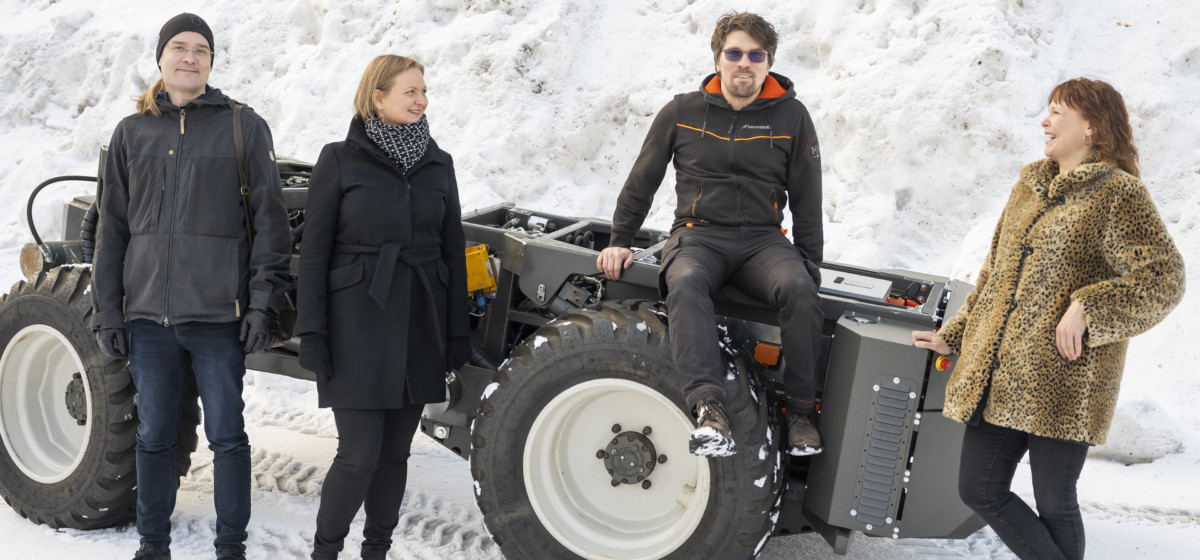
Industrial modernisation
Automod – Robotics Innovations for Circular Economy
Published:
So, how do we discover new robotics innovations that serve the circular economy, especially in smart cities? What tasks could robots connected to a mobile platform perform?
The AutoMod project (Autonomous and Modular Utility Vehicle concepts in CE) is searching for answers to questions like these. The project aims to explore how the platform could work and what kind of robots it could host.
Since its inception in 2021, the project has been searching for innovative new robots and will continue to do so until August 2023.
Last year in 2022, the project held an innovation competition, and the winners, Dimalog and CONTAI, will showcase their abilities in pilots in the Helsinki metropolitan area this spring. One robot will clean the walls, and the other will assist in emptying recycling bins.
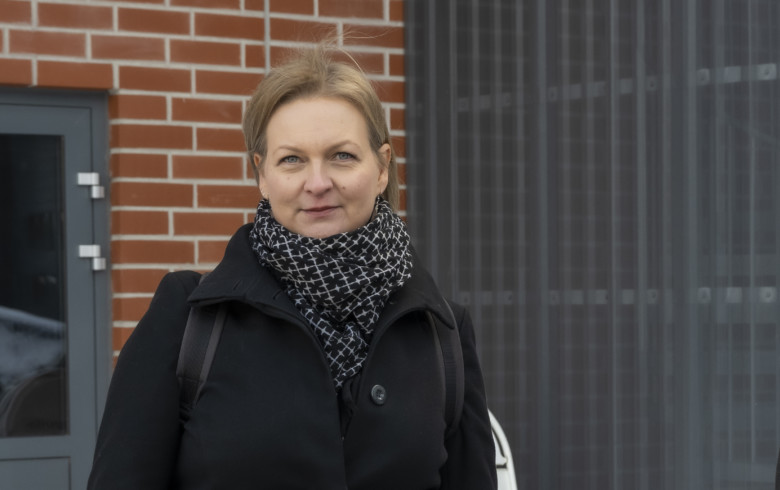
The Automod project is coordinated by Forum Virium Helsinki, the City of Helsinki’s innovation company.
Project Manager Noora Reittu of Forum Virium says that robots could perform many tasks in the near future. A good example is Dimalog’s robot, which removes unwanted graffiti. The robot is one of the winning pilots.
Circular Economy-Related Jobs
We need robots to free us from repetitive work and to perform machine-based tasks independently.
The AutoMod project aims to determine which circular economy-related tasks could be executed by robots.
One significant question is what is required for robots to operate from the platform as intended.
The pilot prototypes were developed earlier this year, and demonstrations will soon be showcased in Helsinki and Espoo. In addition to Forum Virium, the project is hosted by the City of Espoo and Metropolia University of Applied Sciences.
New Contacts and Visibility
In the pilot, Dimalog’s cleaning robot utilizes machine vision and cleaning tools connected to the robot. CTO Teemu Kytömäki of the company explains that the robot recognizes unwanted smudges, performs the cleaning, and informs its platform when the work is complete.
The robot’s significant advantage is cost savings: the robot’s time is inexpensive. Additionally, the cleaning is carried out while conserving energy, water, and detergents.
Kytömäki hopes that the pilot creates new ideas and networks related to smart cities.
The Automod project is also aimed at helping the participating companies develop their businesses. According to Kytömäki, one of the significant advantages of the pilot is the ecosystem that brings together various stakeholders.
He believes that such projects and innovation competitions make it easier for small companies to discover new opportunities.
– We hope to establish new contacts and gain visibility as well.
Dimalog has previously been involved in some interesting pilots, including one where they developed a Home-on-Demand courier robot that delivered fresh meals and grocery items from the Redi shopping mall to the residents of the tower building in the area.
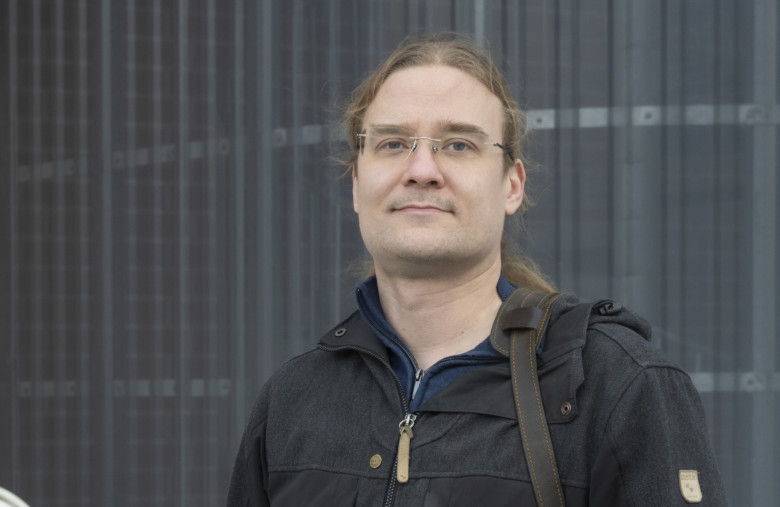
Kytömäki explains that the pilot’s timing was perfect during the COVID pandemic when people telecommuted and stayed home. The pilot was organised by Forum Virium Helsinki as well.
He is uncertain whether the pilot will become a permanent operation in the future because the profitability of such an operation is not yet sufficient. However, with the population in Redi’s neighbourhood growing, the Home-on-Demand courier robot could be in for a busy time, leading to better profitability.
During another pilot, a courier robot transported meals from restaurants to hotel guests at the Mall of Tripla in Pasila, Helsinki. However, the future of this type of service is currently unclear.
Open Information
Robots performing various tasks in different industries is not news to us. According to Reittu, many major companies have their own ecosystems and testing laboratories for automation and robots.
Nevertheless, these companies may still be interested in finding new solutions and listening to the ideas of small companies and startups, even the wildest ones, and so do the cities and the whole public sector. Right now, there is a need for solutions that are sustainable and energy-efficient.
Projects like AutoMod could help small companies attract the attention of larger ones. One of the main objectives of the project is to attract new players in robotics with more efficient services for the circular economy and provide new business opportunities for providers.
Reittu states that the project is very open, and its experiences and results will be shared openly, which will also assist authorities in understanding how the regulatory environment could adapt to support the development of robotics.
The Helsinki-Uusimaa Regional Council and The European Regional Development Fund have funded the project.
Featured image: AutoMod project participants, including Teemu Kytömäki, Noora Reittu, Kari Heikkilä, and Kati Borgers, gathered at Metropolia University of Applied Sciences to check the latest project news, with a platform machine used in the pilot project in the background.
Automod
The goal of the AutoMod project is to create a new kind of business ecosystem and platform in which utility robots can solve circular economy challenges in a smart city. The project is coordinated by Forum Virium Helsinki, the City of Helsinki’s innovation company. The Helsinki-Uusimaa Regional Council and The European Regional Development Fund have funded the project.
Automod
The goal of the AutoMod project is to create a new kind of business ecosystem and platform in which utility robots can solve circular economy challenges in a smart city. The project is coordinated by Forum Virium Helsinki, the City of Helsinki’s innovation company. The Helsinki-Uusimaa Regional Council and The European Regional Development Fund have funded the project.
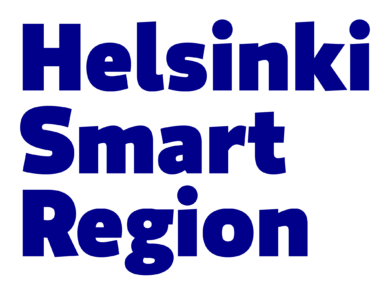






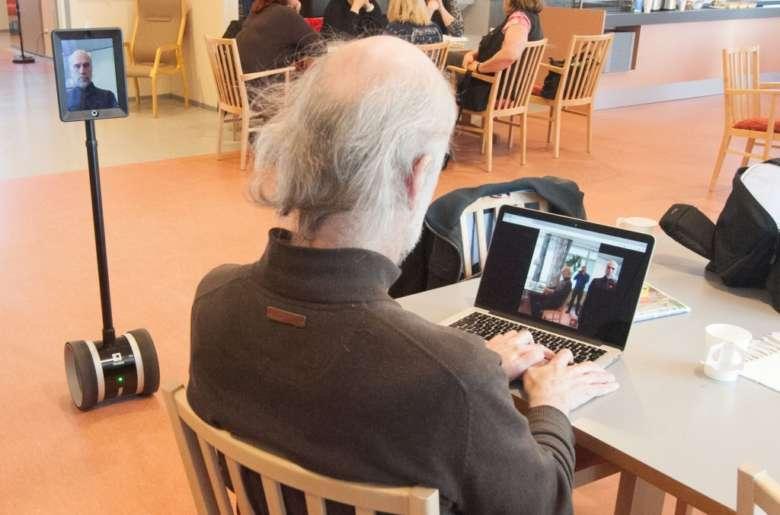

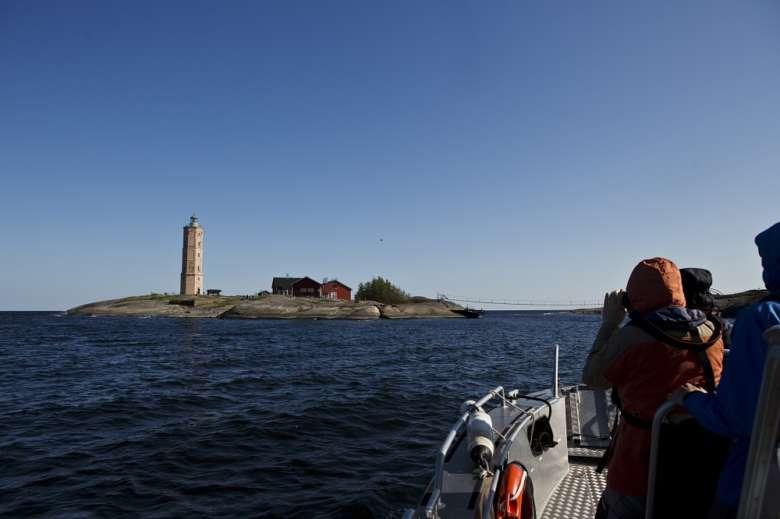
 Return to listing
Return to listing